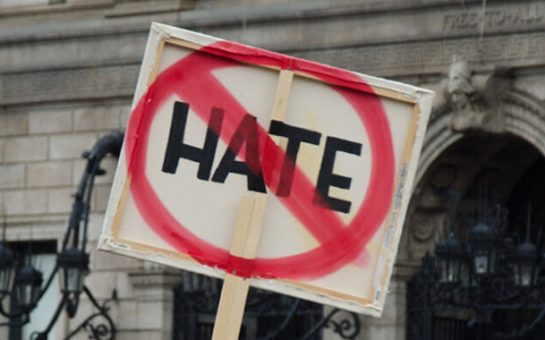Football referees go into the profession because they love the sport. They leave because they grow to hate it.
Among the incessant protestations officials deal with from players, they must also withstand verbal volleys from parents, coaches and spectators – all whilst they are expected to make level-headed decisions in an instant. Yet without a referee, there would be no game at all. As the sine qua non, they should be the most respected individual in the arena. But sport has a way of behaving irrationally. The most important person in the football game is treated as if they could be done without. Referees are berated for ruining matches with partisan, incompetent, spineless officiating, and, more often than not, these accusations are arrowed from both sides. Referees simply cannot win.
It therefore comes as no big surprise that out of the 31,735 referees in England last year (a number that encompasses all officials from grassroots to elite), over 6,500 left the profession. This is a retention rate of 79% which is, ostensibly, a reasonable statistic. The problem is that the FA cannot reveal precisely why the other 21% chose to leave the game. Spend 90 minutes on the touchline at a fixture in any league – junior or senior, amateur or semi-professional – and the reasoning behind the 6,500 refs turning their back on football becomes self-evident.
For comparison, I read some accounts of officials’ experiences in the USA. Their tributes to the profession were overwhelmingly positive, thus making them unrecognisable from the experiences of amateur officials in the UK. One referee, who volunteers in Bowling Green, Kentucky, wrote on one forum:
“People often ask me how I maintain a smile throughout almost every game, however it is quite unintentional. I just cannot erase the pleasure from my face.”
Another official, this time in Lindale, Texas, wrote:
“For me, nothing can be better than being a soccer referee. I love it so much. I’m never going to stop doing it, no matter what.”
Exposure to the aggression shown towards officials in the UK, however, would surely test this level of commitment – and prompt an immediate rewrite of these rather effusive tributes. The referee I interviewed has been refereeing junior level football matches since 2009, but has decided he will quit at the end of the season having grown exasperated by the torrent of abuse from players, coaches, and supporters.
“Cheat,” he responds, when I ask him for the worst insult he has received when refereeing at junior level.
“I’ve been called all the names under the sun, but the worst one for me is a cheat. I was absolutely beside myself. I was almost going to give up the game that day. For someone who is an official who tries to be impartial and is called a cheat, it absolutely wound me up more than anything.”
The conversation inevitably leads to why people get into refereeing in the first place and, more pertinently, why they continue in the face of the relentless dissent.
“When I was younger, football was my life and I basically played it every moment that the lord could send,” he tells me. “I was always out on a football pitch or a piece of grass or in the street kicking a ball and playing football.
“I want to give back to football. The reason I go through this nonsense every week is because I don’t want to be the person who doesn’t allow the 13-year-old me to kick a football – because if there’s no ref, there’s no game.”
As with a player who has a poor game, or an athlete who has a poor run, the best way of forgetting the abuse is to referee another game as soon as possible.
“As soon as you have another game, you being to get over what you were called, because not every game is as bad as the game where you get called a cheat. If you don’t have another game, that game still lives with you.
“After the game where I was called a cheat, I asked if I could go off for two months. In hindsight that was the wrong thing to do. I should’ve just refereed the next game. That’s something that I’ve learnt.”
Of course, this is a lesson that should not have to be learnt at all. But what is the FA’s policy on grassroots refereeing? Does it have a standpoint on the stream of polemic directed towards officials week after week?
Tucked away in the FA website is a file entitled ‘The DNA of English Refereeing’ where, handily, there is an acronym that seeks to encompass all that refereeing in England stands for: Respect, Empathy, Fitness, Evaluation, Reliability, Education, Excellence. It is ironic that ‘respect’ heads this word grouping, for this is what is so conspicuously absent almost every time an official dons their uniform. Not only this, respect for the referee does not even head the DNA of Refereeing list.
“The values underpinning English refereeing” the document reads, are that “everyone should have respect for the game.” Next comes “the laws of the game.” And thirdly, comes “the match officials, observers, mentors, tutors, coaches, players, managers, administrators, and volunteers.” The referee is blended into the mass mixture of volunteers and participants in football – none of whom are treated with the same level of disregard or, arguably, hold the same level of importance.
But where does this disregard come from? My interviewee responds with a swiftness that suggests the answer is obvious.
“It comes from the professional game,” he replies. “It’s endemic. If you can see on the TV that anyone and everyone runs up to the referees and says ‘fucking hell referee that’s a shocker’ and the absolute descent that they show all the time, then kids think it’s OK.
“Every grassroots official that I know has suffered with the sideline, with players, and the general all-round abuse that they have to take from them.”
I then ask him what can be done and what support networks are in place for officials at amateur level. Again, I get a quick answer.
“The structures only care about Level 3 [National League level] and above. They don’t care about the grassroots referee. There’s no forum in which to voice your concerns or look for some support.
“We’re in a semi-crisis when it comes to grassroots. It’s all geared up for Level 3 and above in order to develop the top-end refereeing.”
What seems most evident in this discussion is that there is an exploitation, a ruthless taking advantage of referees who volunteer out of their love for the game. There is an assumption that an official’s commitment to football is always stronger than their capacity to simply discard the aggression hurled their way – an assumption that they are thick-skinned enough for the jibes not to get to them.
“Refereeing becomes part of your life, even though it’s a small thing,” he explains to me. “When I go to work on Monday morning, and I’ve had a bad game, I think about my refereeing. Every other club and every other game, it’s always ‘we lost because the ref was a wanker.’ It’s that sort of attitude that it’s OK to blame the referee.”
Is a protest in response to an incorrect decision, or a cry of incredulity after an apparent injustice, really worth venting if the insult stays with them the next morning as they return to their day job? Is it worth it if it is the final straw that forces them to leave the profession? The next time we represent our local team on a Sunday morning, or look on as a coach, parent, or spectator – take a moment to think about the human holding the whistle. It might even result in better refereeing.

